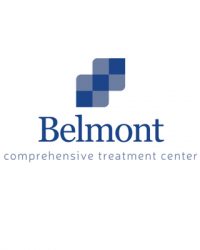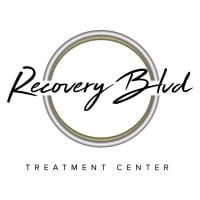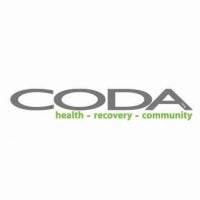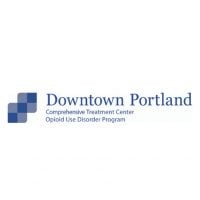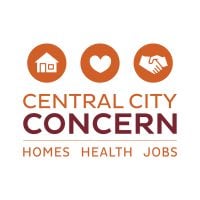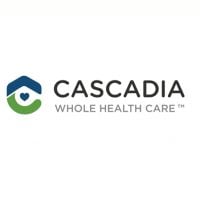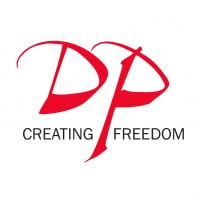Belmont Comprehensive Treatment Center
Drug Rehab Center in Portland, Oregon
Belmont Comprehensive Treatment Center offers specialized addiction treatment programs, including medication-assisted treatment and evidence-based therapies, to individuals struggling with opioid addiction, substance use disorder, alcohol use disorder, and related issues in Portland, Oregon.
About This Portland, OR Facility
Belmont Comprehensive Treatment Center is a specialized addiction treatment center located in Portland, Oregon. It provides a comprehensive range of services to those suffering from opioid addiction, substance use disorder, alcohol use disorder, and other related issues. The facility offers both outpatient and intensive outpatient treatment programs, as well as aftercare support and discharge planning. Through its services, the center helps individuals learn to manage their addictions, develop healthier coping skills, and stay on track with their recovery goals.
At Belmont Comprehensive Treatment Center, patients receive individualized and evidence-based treatments. This includes Cognitive Behavioral Treatment (CBT), Dialectical Behavioral Therapy (DBT), Rational Emotive Behavior Therapy (REBT), Matrix Model, Substance Use Counseling, Trauma Therapy, and more. The facility also offers Medication-Assisted Treatment (MAT) and Naloxone and Overdose Education. In addition, they accept private health insurance, and are accredited by both the SAMHSA and CARF.
Genders
Ages
Modality
Additional
Accreditations
SAMHSA

CARF
The Commission on Accreditation of Rehabilitation Facilities (CARF) is a non-profit organization that specifically accredits rehab organizations. Founded in 1966, CARF's, mission is to help service providers like rehab facilities maintain high standards of care.
Conditions and Issues Treated
Substance abuse refers to the intensive and inappropriate use of psychoactive substances. Psychoactive substances are those that affect brain function. These include illegal drugs, alcohol, and even the excessive use of prescription drugs. The overuse of psychoactive substances leads to severe physical or psychological dependence. It also affects the social life and relationships of the affected individual. Substance abuse is treatable.
The duration of treatment at Belmont Comprehensive Treatment Center in Portland can require weeks or even months depending on the severity of the condition as there is a risk of relapse. Treatment options include medications, counseling sessions, various types of behavioral therapy, and group therapy in different combinations.
Addiction to prescription opioid painkillers like oxycodone and hydrocodone, and illicit opioids such as heroin, leads to potentially life-threatening withdrawal symptoms when discontinued. Opioid addiction treatment typically involves an inpatient stay at facilities like Belmont Comprehensive Treatment Center to make sure they get through withdrawal safely. Treatment also includes comprehensive mental health counseling.
Levels of Care Offered
This center offers a variety of custom treatment tailored to individual recovery. Currently available are Aftercare Support, Detox, Drug Rehab, Intensive Outpatient, Outpatient, with additional therapies available as listed below.
Detox is the primary substance abuse treatment administered to a patient suffering from drug addiction. Detox helps patients in Portland, OR recover from drug-addicted through regular monitoring of medical professionals and temporary utilization medication, other techniques.
If you or someone you know suffers from a substance abuse problem, it is crucial to understand the different options available for treatment and seek help as early as possible. These days, detox centers offer several methods for drug and alcohol addiction rehabilitation and treatment.
An intensive outpatient program is a good option for someone in Oregon with a milder or less severe addiction. An IOP may involve daily meetings at a treatment facility, along with personal counseling and peer meetings. Some IOP programs offer half-day treatment, while others offer full-day programs. Belmont Comprehensive Treatment Center‘s IOP is customized per individual.
Outpatient programs are the standard for addiction treatment. About 9 in 10 U.S. adolescents entering addiction treatment enroll in these programs, so you’re not alone in Portland, OR. Treatment is delivered in different settings – offices, clinics, and primary care clinics.
Facilities offer a variety of services, such as individual and group counseling and family therapy. During the sessions, you work with a team of experts that include: General physicians, Psychiatrists, Social Workers, and Psychologists. The main goals of outpatient recovery programs are to help addicted individuals reduce drug use and addictive behaviors, eventually becoming entirely sober.
Aftercare comprises services that help recovering addicts readjust to normal day-to-day Oregon activities. It can last a year or even longer. Services include individual and family counseling, medications to reduce cravings, and treatment of psychiatric and other medical conditions. Aftercare support begins once you have completed earlier stages of treatment.
Belmont Comprehensive Treatment Center‘s Therapies & Programs
Many people turn to drugs and alcohol as a way of processing trauma that has affected them in the past. Trauma can include abuse, neglect, the loss of a loved one and other unpleasant incidents. Trauma therapy at Belmont Comprehensive Treatment Center helps patients process trauma. It gives them the tools to deal with it in a healthier manner.
Dialectical behavioral therapy (DBT) is a type of Cognitive Behavioral Therapy that focuses on eliminating specific negative thoughts such as suicidal thoughts that can potentially lead to an individual inflicting self-harm. It is useful in the treatment of patients exhibiting uncontrollable emotions, intense mood swings, and borderline personality disorders.
The term “Dialectic” means the integration of opposites. In the substance abuse context, DBT refers to accepting the patient’s addiction and working to change their thoughts and behavior. It improves life skills such as controlling the intense emotions without reacting impulsively, resolving the interpersonal conflicts effectively, and promoting awareness about self and others.
Cognitive Behavioral Therapy (CBT) examines the relationship between a patient’s thoughts, feelings and behaviors. Belmont Comprehensive Treatment Center aims to establish a healthy response to thoughts and feelings as an alternative to turning to drugs and alcohol. It also promotes healthy communication between addicts and those around them. It is and effective therapy for people suffering with all types of addictions.
Rational Emotive Behavior Therapy (REBT) is a type of cognitive therapy. It is based on the principle that irrational thoughts are responsible for the emotional and behavioral changes in addiction. So, the therapy starts with identifying the underlying irrational thoughts. These thoughts are then challenged and opposed logically and then replaced with positive thoughts. It also helps to change unwanted behavior with techniques such as meditation.
By imparting positive thoughts and emotions, Rational Emotive Behavior Therapy (REBT) makes the individual self-reliant with a capacity to handle the emotional and behavioral issues in future by themselves without professional help. This self-dependence benefits the patients and prevent relapses.
Contingency Management (CM), also called motivational incentives, is a type of pure behavioral therapy. It’s based on the idea that behavior is shaped, motivated, or controlled by its outcomes. CM is a clinical application at Belmont Comprehensive Treatment Center of operant conditioning, which helps clients eliminate unwanted behaviors by the use of positive and negative reinforcement.
Payment Options Accepted
For specific insurance or payment methods please contact us.
Is your insurance accepted?
Ask an expert, call (888) 674-0062
Additional Details
Specifics, location, and helpful extra information.
Portland, Oregon 97214 Phone Number(503) 239-5738 Meta DetailsUpdated November 25, 2023
Staff Verified
Patient Reviews
There are no reviews yet. Be the first one to write one.
Portland, Oregon Addiction Information
Oregon’s drug abuse rates are higher when compared to other states in the country, and currently ranks 5th in the nation for drug-related health issues. Marijuana and prescription opioids are among the top drugs most often abused by teenagers in Oregon. Alcohol abuse in the state is also higher than average; over 6.25% of residents abuse alcohol every year.
The drug addiction problem in Portland, OR, is relatively inadequate. Over 124,000 people in Portland reported using illicit drugs in the past month of 2014. Additionally, over 2,200 people in Portland died from drug overdoses in 2016. Drug addicts often turn to crime to get money to buy drugs, which can negatively impact the community. There are many types of treatment available in Portland including inpatient and outpatient care and 12-step programs.
Treatment in Nearby Cities
- John Day, OR (195.7 mi.)
- Klamath Falls, OR (231.6 mi.)
- Silverton, OR (36.0 mi.)
- Clatskanie, OR (48.9 mi.)
- Saint Helens, OR (25.3 mi.)
Centers near Belmont Comprehensive Treatment Center
The facility name, logo and brand are the property and registered trademarks of Belmont Comprehensive Treatment Center, and are being used for identification and informational purposes only. Use of these names, logos and brands shall not imply endorsement. RehabNow.org is not affiliated with or sponsored by Belmont Comprehensive Treatment Center.
